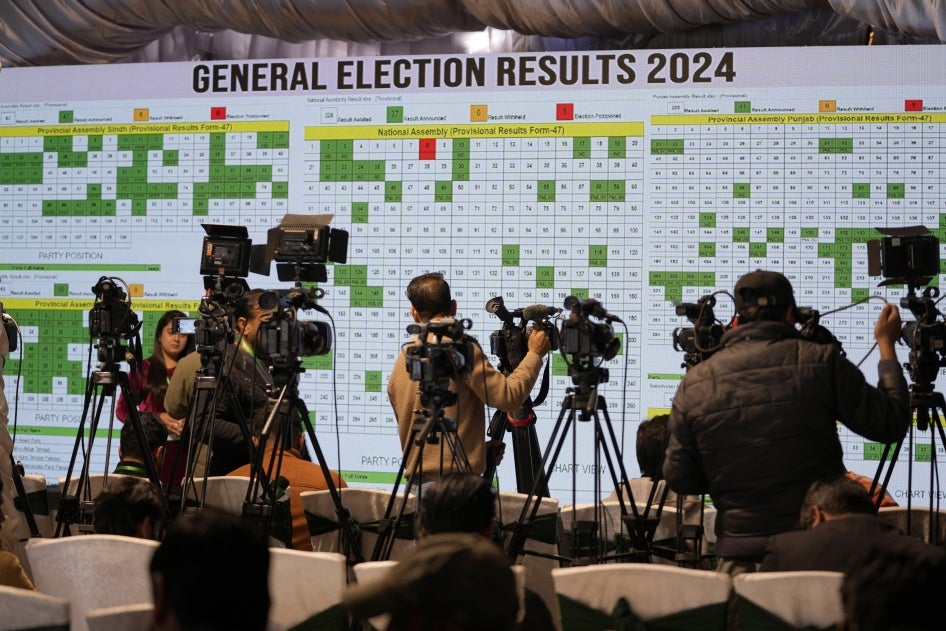(New York) – Pakistani authorities should ensure the peaceful transfer of power following national parliamentary elections on February 8, 2024, Human Rights Watch said today. The Election Commission of Pakistan should promptly announce the official results, and all political parties and stakeholders should commit to upholding democratic norms and cooperating with an independent investigation into alleged election irregularities.
The elections were marred by the authorities’ widespread clampdown on freedom of expression and association. The mass detention and harassment of supporters of the Pakistan Tehrik-i-Insaf (PTI) party, including a ban on the use of its election symbol, undermined a fair vote and prevented a level playing field for all candidates. The authorities further harmed the credibility of the electoral process by shutting down cell phone signals on election day and delaying the announcement of election results. Several candidates have alleged vote rigging in some locations.
“The Pakistani government should respect the election results and ensure a peaceful transfer of power,” said Patricia Gossman, associate Asia director at Human Rights Watch. “Pakistan’s deepening human rights and economic crises highlight the need for a representative government that will promote respect for fundamental rights and freedoms.”
No party achieved a simple majority of the February 8 vote. Instead, the results have been split among the three major political parties: PTI, Pakistan Muslim League Nawaz (PML-N), and the Pakistan Peoples Party (PPP). Until there is an accepted resolution, the current impasse could lead to protests. The Pakistani authorities should uphold the right to peaceful assembly while responding to acts of violence with the minimum force necessary.
International observers including the European Union, United States, and United Kingdom have expressed concern about the fundamental fairness of the elections for all political parties and called for an investigation into claims of election irregularities.
Before the elections, a government crackdown on opposition parties, primarily the PTI, the party of imprisoned former Prime Minister Imran Khan, as well as other opposition parties, has resulted in hundreds of detentions – some on charges of violence. Journalists described intimidation, harassment, and surveillance by the authorities for perceived criticism of the government. Some politicians and journalists have been charged under Pakistan's vague and overly broad sedition law, based on colonial-era legislation, and dozens have been tried in military courts in violation of international law.
Pakistan has had a history of elections that raised serious concerns as to whether they were free and fair. Similar election irregularities marred the 2018 and 2013 elections.
The policy of successive Pakistan governments of clamping down on critical voices in the media, nongovernmental organizations, and the political opposition has eroded the infrastructure for upholding human rights and democratic governance. Structural denial of rights, such as requirements for computerized identification cards, has practically disenfranchised marginalized groups, including in this election, Human Rights Watch said.
Pakistan has been undergoing one of the worst economic crises in its history, jeopardizing millions of people’s rights to health, food, and an adequate standard of living. These human rights challenges will need to be addressed by a government that has legitimacy both at home and abroad, Human Rights Watch said. Among the human rights challenges facing the country, the incoming parliament should adopt electoral reforms to remove structural barriers to political participation and guard against improper interference in the electoral process.
“The Pakistani government’s repeated crackdowns on free expression and association in the political process have hurt the credibility of the country’s elections,” Gossman said. “Real reform of the democratic political process is needed to put an end to the political manipulation of elections.”








